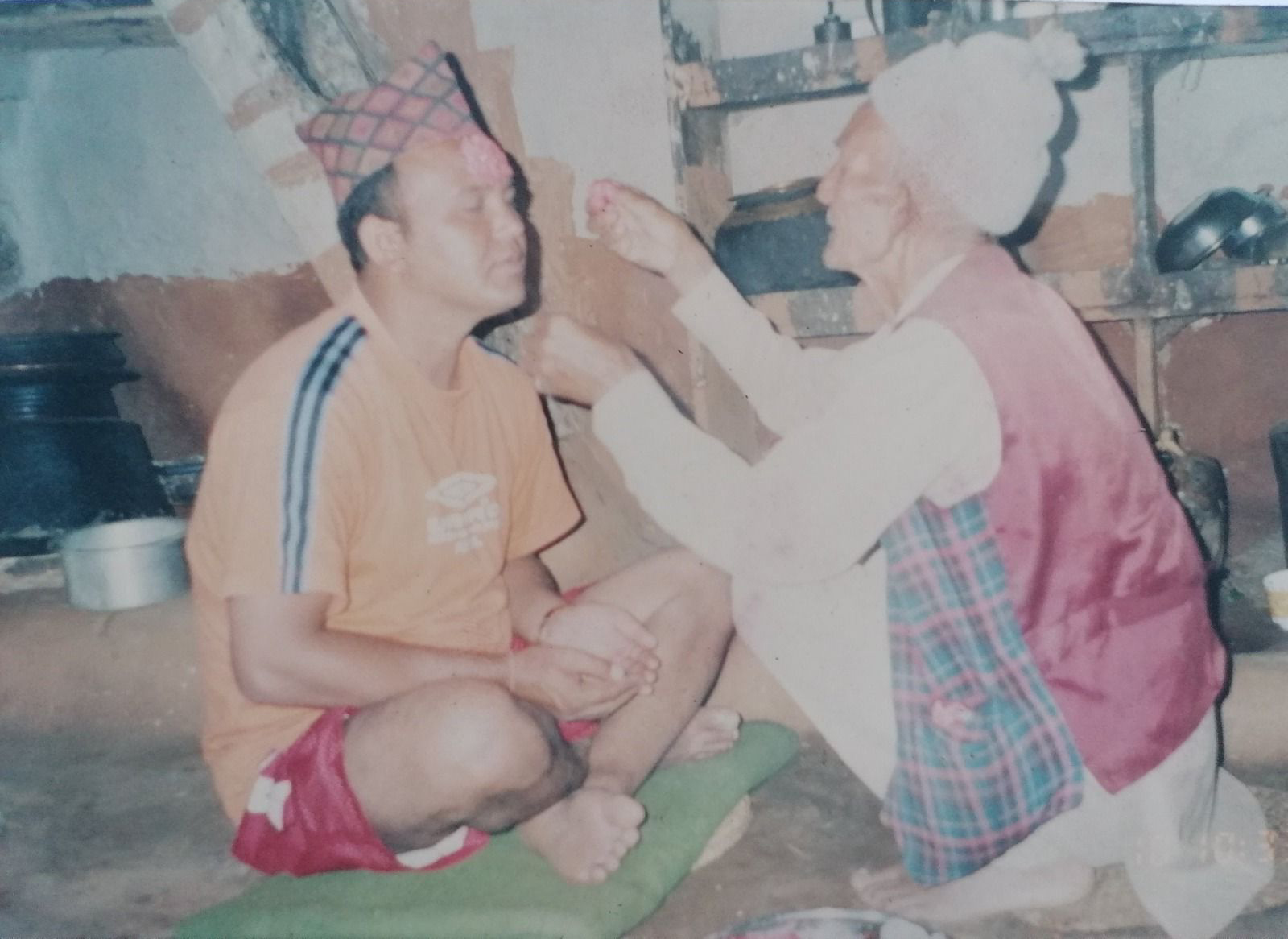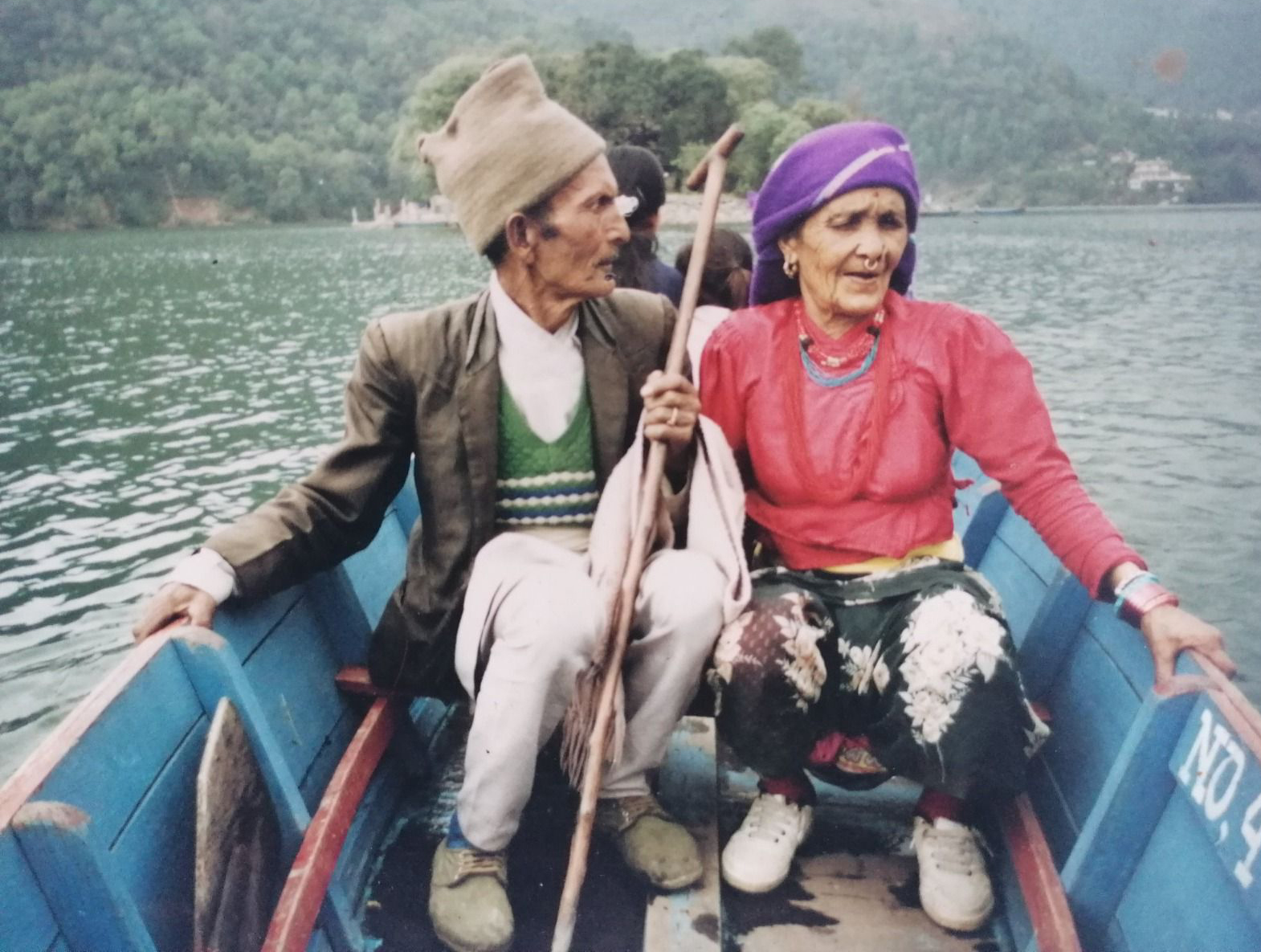For better or verse in the Gulf
After 20 years in the UAE, a Nepali migrant worker returns to make a living from his passion for poetry
This is the 21st instalment of Diaspora Diaries, a regular series in Nepali Times with stories of Nepalis living and working abroad.
When I remember my poverty-stricken childhood, what comes vividly to my mind is how my mother and sisters walked for three days from my village in Ramechhap to Godar with sacks of potatoes and returned with salt, masala and tobacco.
Dasain evokes many memories of childhood in people, but for me the festival was a time to finally eat rice, a welcome break from makai and kodo. I used to run around barefoot and it used to be painful, so after seeing an image of Ram and his paduka in a copy of the Ramayana, I improvised my own wooden slipper.
My parents had to struggle taking care of us 10 children. But my mother had strong management skills, and those were abundantly evident in how she allocated to all of us specific household duties every evening for the next day. Somehow, this ‘homework’ allowed her to ensure a semblance of order in that chaos.
Education was never a priority even though my school was just five minutes away. This was unsurprising because tattered clothes, unpaid school bills and struggle to buy notebooks do not particularly lend themselves to high performance.

Ten brothers and sisters in my house meant I was always amidst siblings and relatives. But in those days the village itself was bustling with people, unlike these days when it is empty because many in the community have moved out for work.
Back then, money had no value in rural Nepal. Neighbours helped each other build or repair homes, and during the during harvest season everyone pitched in. Now, even if you are willing to pay, it is difficult to get farm help or hire construction workers.

The irony of our village life is that when there were no services and facilities in the village, it was full of people. Now that there is a motorable road and shops, there is no one left.
My parents were irregular with paying school fees, but we had a roof over our heads and relied on subsistence farming for food. That was until the weddings of my brothers, when my father borrowed Rs3,000 from the village money lender. He had to pay 3 pathi (1 pathi = 4 litre container) for every 100 rupees. I remember the moneylender used to show up with an empty sack for his ‘interest’ payment every month.
After being buried in debt and giving away our produce as interest, we even had to go to bed on an empty stomach. That was a new low for me and my family.
I soon left home to work on the Miteri Bridge and other road projects, or wash dishes at the Karna Purna restaurant in Maha Bouddha in Kathmandu which is still in operation. These stints allowed me to survive until an uncle helped me get enlisted into the Nepal Army.

It was a good opportunity, although I often felt suffocated with the discipline, being someone with a knack for writing ghazal odes, and for storytelling. The rigid military environment was not for me. Even then, I knew it was my ticket to serve as a UN Peacekeeper overseas so waited for my turn to serve in Southern Lebanon for six months before resigning from the army after 11 years of service.
It was a unique opportunity that allowed me to earn $450 a month. I could have bought land with the savings, but I spent it instead on household items and gold for my family and paid off my parents’ loans. Buying property for myself when my family was struggling and deep in debt did not seem right.
Then, a friend in the UAE sent me a letter, encouraging me to come there for work. This was 1998, so it was a letter by post. Soon enough, I was on a plane to Dubai where I ended up spending the next 20 years.
At that time, there were only a few thousand Nepalis in the UAE, and we would mistake Filipino workers for Nepalis. Meeting fellow Nepalis used to be rare and exciting9

I worked in the security sector and was lucky to be eventually promoted to a supervisor position. In one of the commercial buildings where we were posted, I once found a computer in the trash bin. It worked fine, so I took it to my dorm and taught myself to type in Nepali, one key at a time.
A Nepali brother who was technically savvy also taught me how to use pageview and within three months, I started publishing a monthly paper called Sahayatra (Fellow Traveller) that included news and current affairs from Nepal and ghazals.
This was the pre-smartphone era, and we used to make 10,000 photocopies of Sahayatra and distribute it for free to fellow Nepalis in the UAE. The revenue came from advertisements from Air Arabia, Western Union and Nepali restaurants.

But overseas employment came at a cost. It took a strain on my relationship with my wife with whom I separated. I am not sure if the outcome would have been any different had I been in Nepal. For the next two years until I remarried, I was depressed and had lost all my motivation.
This pain of loss in a foreign country was reflected in my ghazal verses, and is the reason behind my pen name Ghayal (Wounded), which is how I am still known in my circle.
I returned to Nepal in 2018 for good, leaving behind a very different Dubai from how I had first found it in 1998. There was just one 56-storeyed building called the World Trade Centre on Sheikh Zayad Road at that time, and it used to be surrounded by camel farms and sand dunes.
There was just one shopping mall, but right in front of my eyes over the two decades I was there, the country was transformed. It was like magic. My journey is covered in Kesang Tseten’s documentary A Migrant Speaks.
Failure to find a meaningful job in Nepal meant that I had to re-migrate to the UAE for work again. This time, though, there was no more scope for Sahayatra, since we had Internet. The domain ‘Sahayatra’ was already taken, so I chose a random website name. SahayatraTV is now my YouTube channel that has grown over the years to 30,000 subscribers and is thankfully monetised.

My company in Nepal now also films weddings and other events. I was self-taught in using a computer, formatting and video-editing. All because I once retrieved a discarded computer from the rubbish bin in Dubai.
YouTube has helped me hone my video editing skills. Working overseas has also taught me the value of formal education. I made it to supervisor level despite having done only Grade 6. But with my leadership and English language skills, I could have been promoted to manager level if I had a higher education degree. That is why I have invested in my children’s education.
One of them is now in the UK working as a chartered accountant, and he sends money home -- an intergenerational boost that I am proud of. I have also prioritised the education of my remaining three children and will not let money be a deterrent.

Twenty years abroad was full of ups and downs for me, Ghayal, but it was all for the children and their secure future.
Come to the desert
See how the sun is
See how barren the desert is
Come to the desert
See how the sun is
Don’t expect money growing on trees
Don’t expect money growing on trees
Try to understand how it is to work in the desert
See how barren the desert is
These days the desert sun fears us
Ever since it felt the mountains in our heart
I have room for any amount of love within me
Though we toil here, we remain strangers
Though we toil here, we remain strangers
Listen, dear Nepal is within me
I have room for any amount of love within me
(Translation from Kesang Tseten’s A Migrant Speaks)
Translated from a conversation with the author. Diaspora Diaries is a regular column in Nepali Times providing a platform for Nepalis to share their experiences of living, working, studying abroad.
Authentic and original entries can be sent to [email protected] with ‘Diaspora Diaries’ in the subject line.




